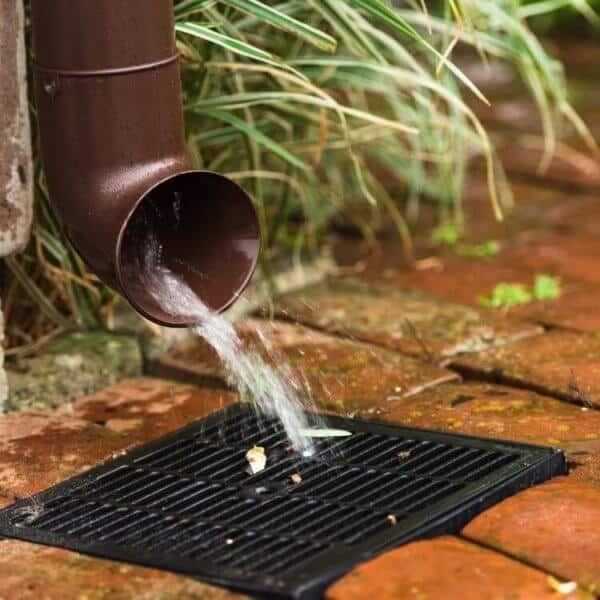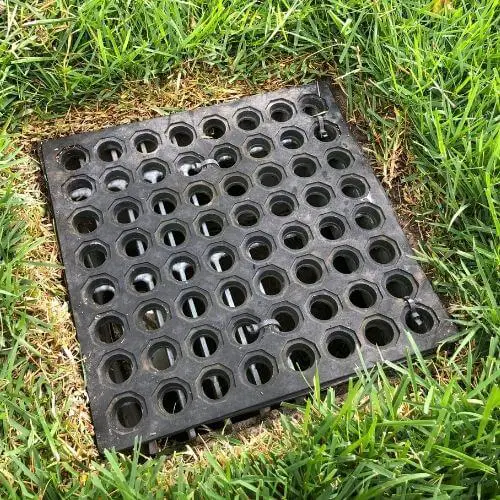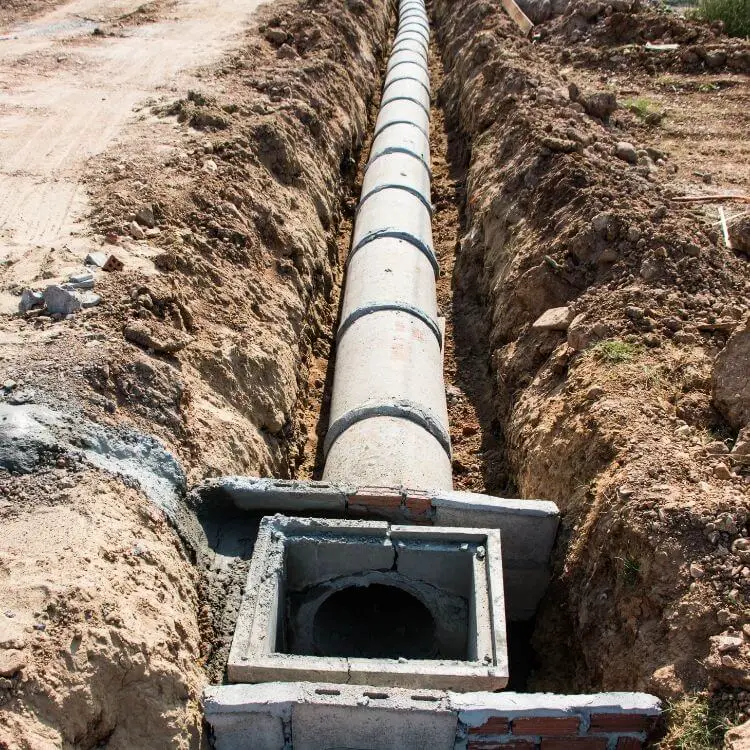Are you thinking of building a new home, but you are not sure what are types of drainage systems for houses? Or do you work in construction and need a recap on the drainage systems? Building a home might be one thing, but ensuring the best drainage system will be entirely different.
Most house foundations around the world have collapsed due to poor drainage options. When the rainwater or other faulty drain water makes the foundation waterlogged, your building might be at risk.
This article will look at the type of drainage systems that keep all your drainage water and other wastewater at the right place.
Let’s start this discussion by answering these simple questions.
What is a drainage system?

The drainage system has many definitions in different fields. But in construction and plumbing, a drainage system refers to all the piping procedures done on a property to convey sewage, rainwater, or other liquid waste to the disposal point.
You will need such a system to ensure that you get rid of unwanted liquid waste from your home. Liquids, especially rainwater, need a proper channel and disposal point to guarantee a healthy environment in any home.
So, whichever type of drainage system you choose, it should sort all your drainage needs leaving your home fresh and clean.
So, which are the types of drainage systems for houses?
Since different people and different house designs require specific requirements, you will find different types of drainage systems. The following factors will decide the type of drainage system you have to decide on.
Factors to consider before settling on the type of drainage system for a home
- The type of soil
The type of soil in your construction site will be a great deal. Your contractor will advise on the drainage system depending on your soil factor. Different soils have different abilities to drain water, which determines your drainage system of choice.
- The design of your house
The house design dictates the type of drainage system. If your designer prefers a specific drainage system, you may go ahead with the plan.
- The state laws
As most serious plumbing decisions require a permit, some of the drainage systems might as well. It would be best if you got conversant with what the law in your area of residence requires before deciding. [1]
- The original drain system
If your house gets to be an old house, installing a drainage system will depend on the existing one. This consideration will make replacement and repair easier.
- The level of plumbing maintenance you wish to invest in the system
Long-lasting equipment guarantees durability. Quality materials come at a higher cost. If you need longer-lasting drainage systems, investing in the best material will determine the type of drainage system.
- Cost incurred
Your drain system budget will be another factor to consider. Some systems will require a higher budget cost than others and vice-versa. Depending on your budget range, you will find your most affordable drainage system option.
Depending on these factors, you will now settle on the drainage system that suits your project.
What are the renowned types of drainage systems for houses?

In plumbing construction, you will come across two types of drainage systems.
Since ages immemorial, we may categorize drainage systems into categories. These two main types include:
Surface Drains
Surface drains refer to drains done on ground level and get directed to the PVC piping. With these ground-level structures, rainwater and any other surface water get directed to the PVC piping.
You may use channels or ditches to collect the surface water and redirect it to the PVC piping. The PVC piping then runs water away from the house foundation, and you get a water-free environment. The different types of surface drainage systems include:
- Humps & hollows
- Levees
- Open drains
- Grassed waterway
French drainage system
This system uses perforated PVC piping. These PVC pipes are installed in a deep drain around the home and are covered with gravel.
In this system, the perforated PVC pipes collect the water that would otherwise have gone into the home’s foundation. You have to dig ditches to place the perforated PVC pipes.
One benefit of this system will always be that the system sieves any foreign material letting only water in. The chances of blockages remain minimal. It then transfers the water away from the house and prevents waterlogging.
Since you don’t only have rainwater to deal with, other types of drainage systems come into the picture. These drainage systems include:
The slope drainage system
This drainage system uses the advantage of gravity to drain excess water. The water flows down from your house in a downward motion.
Pipes run down from the structure and slope in a downward direction. You will succeed in draining water, mainly if your home is located in a hilly area.
Gutter systems
Did you know you may use gutters to redirect rainwater from your structure to different areas? Currently, this drainage system gets used in water harvesting in many places worldwide.
After your tanks get full, you may redirect the water to underground sewers or other areas far from the house. The gutters might be PVC piping and get directed to aluminum extensions, barrels, or buried drainpipes.
Which will be the best drainage system for a home?
Depending on where the home gets located, it will take a particular drainage system. Mainly, rainwater causes the need for a drainage system. You will also require a drainage system to avoid risking your structure’s foundation
in flooded regions.
Surface and French drains will serve you best in a flat land setting. However, if the house gets located in a raised or hilly area, you will need the slope drainage system. Gutters will work in almost every area to guarantee a water-less environment.
What are the advantages of installing these drainage systems in your home?

Your structure will last long.
Surface water causes significant construction risks worldwide. Once the foundation of any house gets exposed to too much water for a long time, it weakens. In addition, some materials used in building structures get affected by water absorption. If the foundation weakens, then the building may eventually collapse. A collapsed structure risks the lives of those inhabiting it. So, by ensuring a working drainage system, you might be saving lives.
It will keep away insects like mosquitoes.
Dangerous insects and animals may inhabit the waterlogged grounds neighboring your home. Therefore, the WHO advises keeping a dry environment and keeping mosquitoes and other dangerous animals away from our homes. [2]
Good drainage increases the net value of your home
At one point in life, we all need to sell our current homes and may be upgraded to new ones. Or, you might need to relocate. If you have an efficient drainage system installed in your home, its net worth increases.
For people in the real estate business, a well-drained house will attract buyers faster.
It will improve your state of living.
Poor drainage will cause you stress and lack of peace. Nothing will be more boring than having your driveway and compound waterlogged. You will also risk flooding your house when heavy rains fall. However, if you keep a sound drainage system up and running, you will live comfortably.
How much will installing my drainage system cost?
It may be unfair to finalize this article without giving you a rough estimate of your drainage system project. It will, however, be much lower compared to the general structure building cost. In estimation, it will cost you between $1,900 and $6,100.
Smaller projects take approximately $4000 to complete the drainage system. With these figures, you may plan on having professional drainage systems. It might surprise you that you incur lower costs depending on where you live.
Final Thoughts
We have different types of drainage systems, including surface and French drains. The desired drainage system you choose will depend on your soil type and terrain, among other factors.
It would be best to use the drainage system estimation calculator to determine the cost of installing these structures. Feel free to try these drainage systems and let us know which type of drainage system has worked for you.

Michael Davis is a heating & plumbing expert who currently works as independent contractor in SC. He also writes for Plumbertip.
For almost 10 years he worked on various plumbing tasks across South Carolina.



